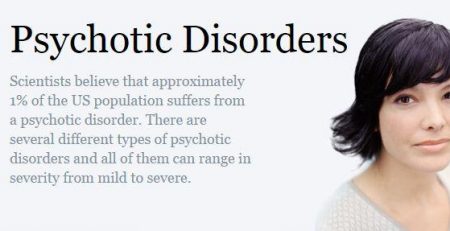Paraphrenia: What You Need to Know
Paraphrenia is a psychotic disorder which is similar to schizophrenia but not as severe as the latter in terms of personality deterioration. The onset of the disorder is during the last stages of life, so it is generally found among the elderly.
In the late 1890s, medical expert Emil Kraepelin used the terminology ‘paraphrenia’ to define a group of patients who were exhibiting mild symptoms of schizophrenia.
Today, medical practitioners define delusional disorder with hallucinations as paraphrenia. The condition is also one of the signs of the onset of dementia in a person. Such people experience hallucinations and may talk about things that are not happening. For example, an individual may talk about experiencing police surveillance with no evidence to back the claim.
Unlike schizophrenia, this condition is less hereditary and progresses slowly. It is also observed that people who are overly-sensitive are susceptible to having the condition.
The Causes of the Disorder
There can be the following two causes for the occurrence of paraphrenia:
1. Neurological
Any physical changes in the brain, particularly caused due to stroke, tumor or neurodegenerative process, can result in paraphrenia.
2. Predisposing Factors
Factors like any sensory impairment (hearing or visual), a lack of social contacts or strained relationships may not necessarily be a cause of the disorder. But their pre-existence in a person makes him or her more likely to have paraphrenia.
Symptoms
For a long time, paraphrenia was often misdiagnosed as the late-onset of schizophrenia. While the disease may be similar to this psychotic disorder, it has usually adopted the positive traits of that disorder.
The health of the person with the condition doesn’t deteriorate at a fast pace. The only similarity that the two disorders may have with respect to each other is that they cause hallucinations and delusions in patients.
What makes this condition difficult to be diagnosed is the fact that a patient doesn’t show significant changes in habits or personality or even intellect. They are also well-oriented and well-aware of the time and their surroundings. They can, however, be paranoid in normal settings; have the fear of being followed or spied upon.
Treatment
Even though it is rare, the disorder can also be temporary in nature, allowing the patient to recover fully. In most cases, however, mostly because of the older age of patients, the disease remains with the patient for a long-term and is managed through proper medication. The treatment is simple and requires antipsychotic medications which have to be taken regularly.



